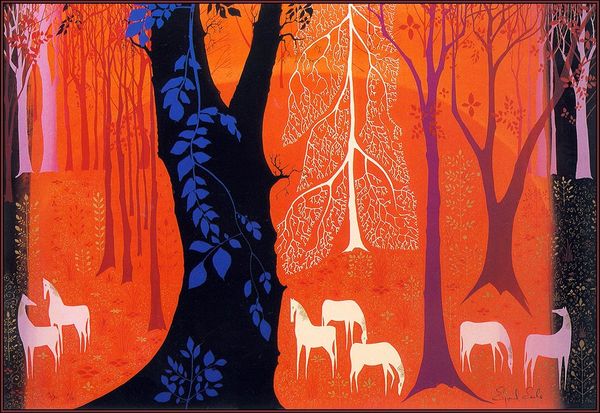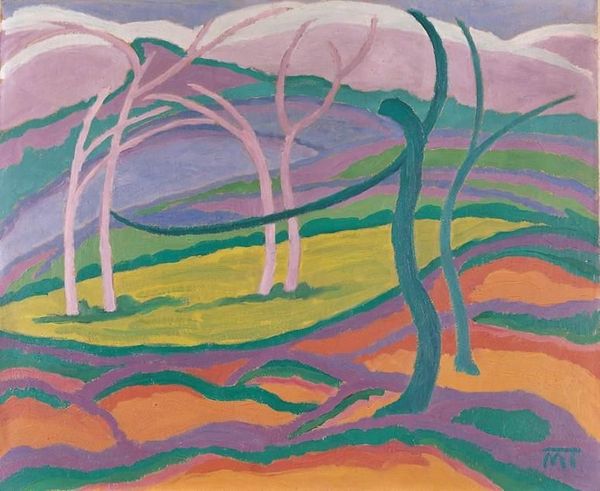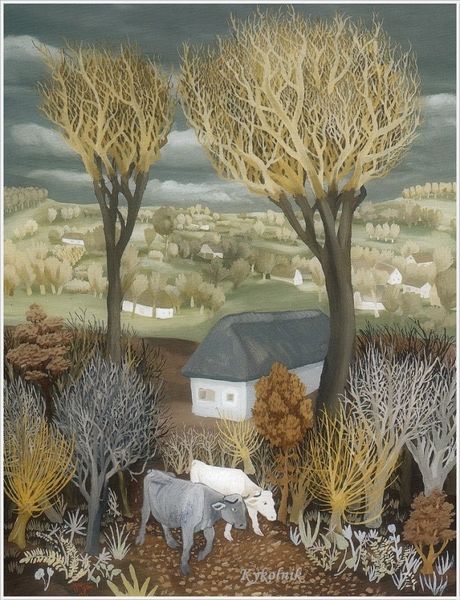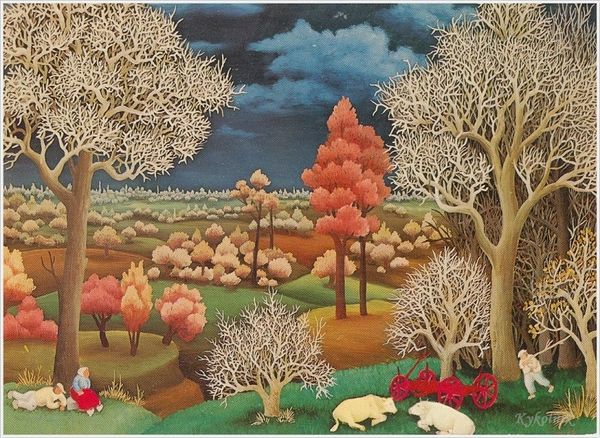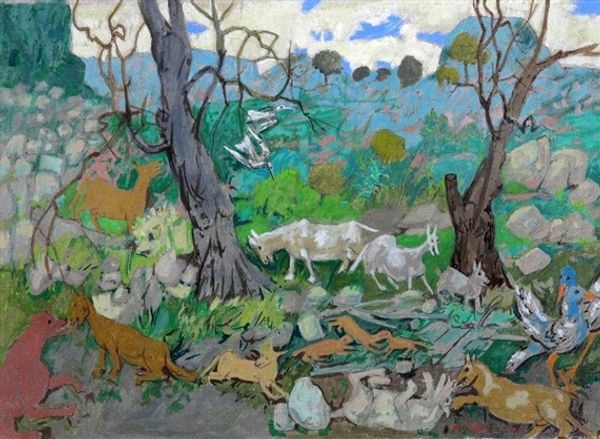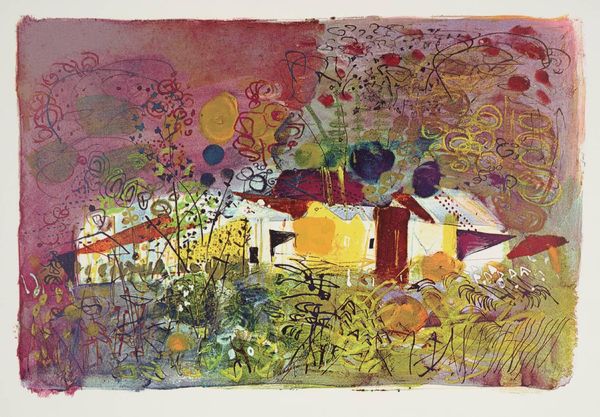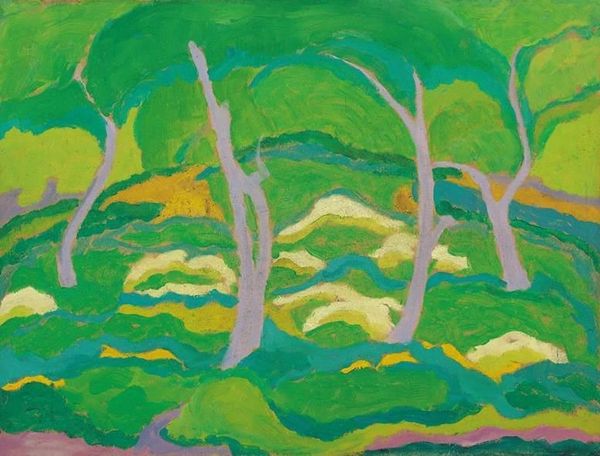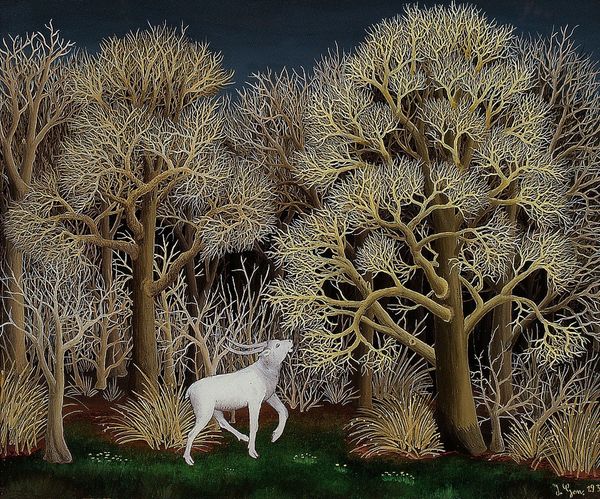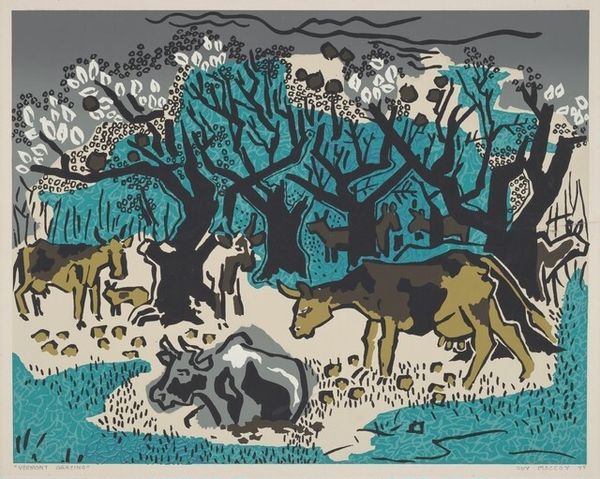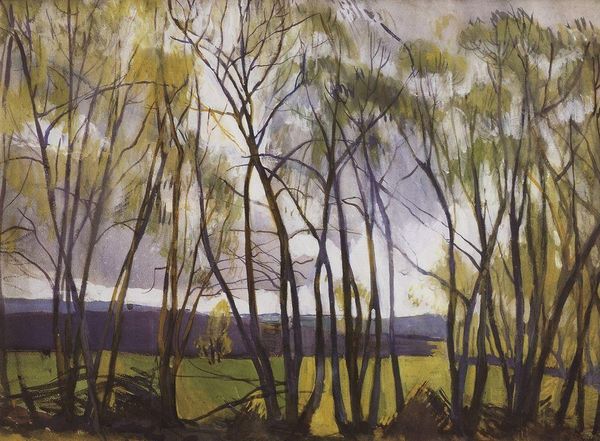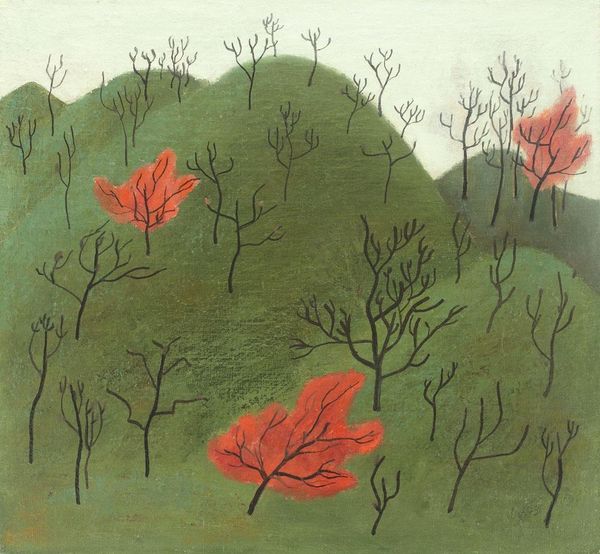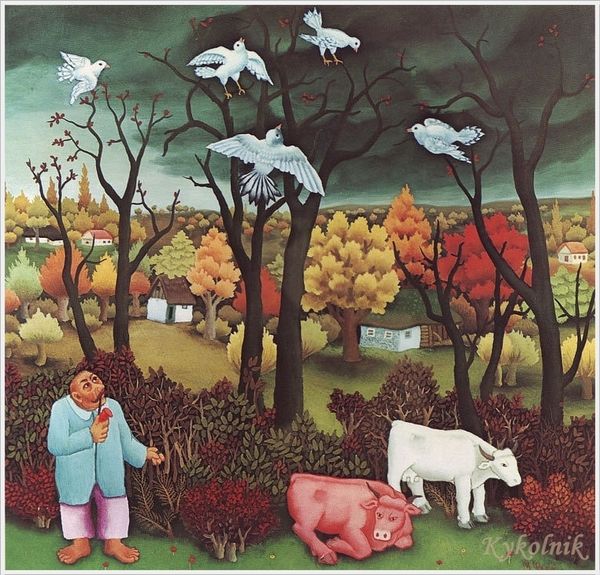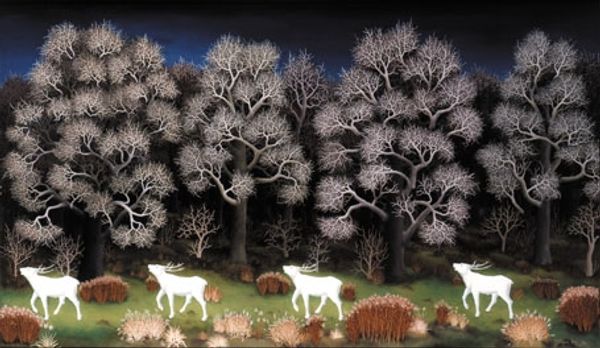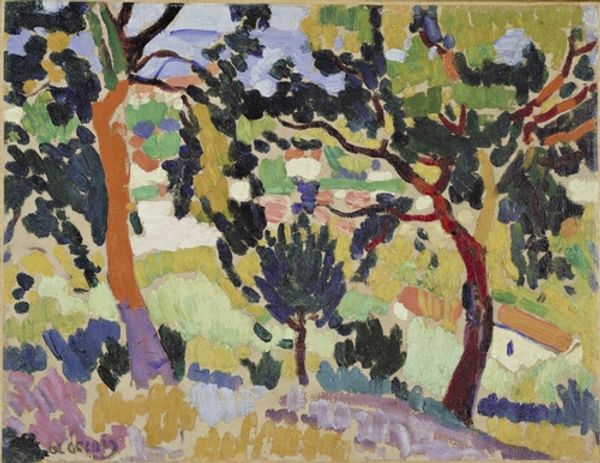
Copyright: Jean Hugo,Fair Use
Curator: Jean Hugo's "Les trois chevaux," created in 1975. It appears to be watercolour. What is your initial reaction to the piece? Editor: Utter charm! It's so sweetly composed. A bit naive, almost like looking at a childhood dream of a countryside scene, all rounded hills and placid creatures. The colours are joyful! Curator: It certainly evokes a bucolic idealism. The brushstrokes, especially in the trees and the lilac sky, seem quite deliberate and repetitive. It's not just about capturing a scene; there's an element of pattern-making, wouldn't you agree? Editor: Absolutely, there’s a definite rhythm to the brushwork, almost musical. But you can see, too, how those repeated dots and strokes could reference labor, the very physical act of applying the paint, layering colour to slowly make that landscape take shape. Curator: Interesting. Considering Hugo's lineage – being the great-grandson of Victor Hugo – and his engagement with various artistic movements throughout his life, how might his privileged background influenced his artistic choices, his freedom to, perhaps, explore such simplified forms without concern for market expectations? Editor: That's a great point. Perhaps the privileged background gave Hugo the freedom to indulge a childlike, innocent vision. One where cows stand among horses as equals, watched over by cheerful blobs of bushes in each corner! The lack of perspective, that deliberate flatness, feels… generous. He gives us simplicity in its most pleasant form. Curator: Do you feel like the "naive art" is the right description for this piece, or do you think it carries more nuance because of Hugo’s training and history? Editor: You're right to point that out; I think it’s walking a fascinating line. He knowingly simplifies, which is different from truly naïve creation, the self-taught rawness that art historians adore. This work certainly dances with the spirit of naivety, but there’s an elegance that peeks through all the simplicity. Curator: On reflection, analyzing the intersection of artistic labor, idyllic simplicity, and familial privilege gives me much to consider within the artwork's context. Thank you for your thoughts. Editor: Likewise! Hugo's little scene opened a wider horizon, proving it’s full of life.
Comments
No comments
Be the first to comment and join the conversation on the ultimate creative platform.
